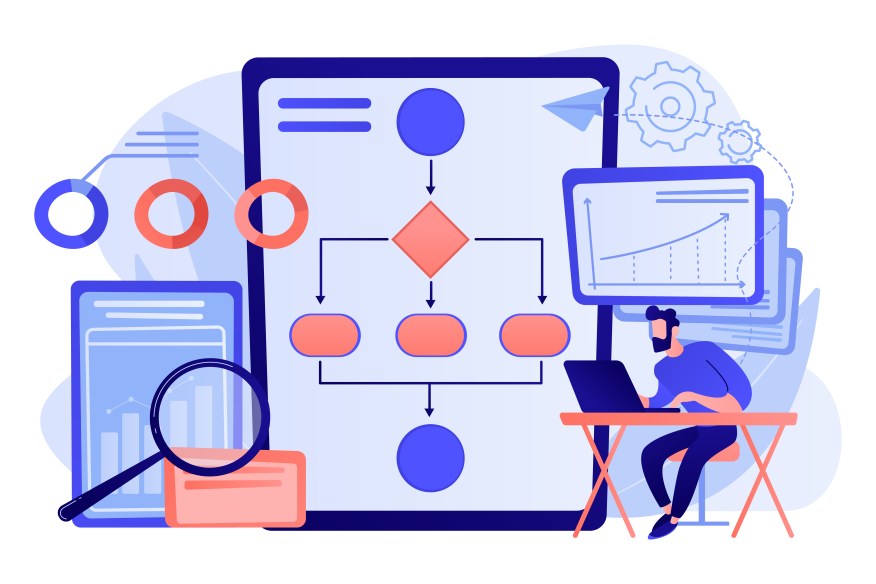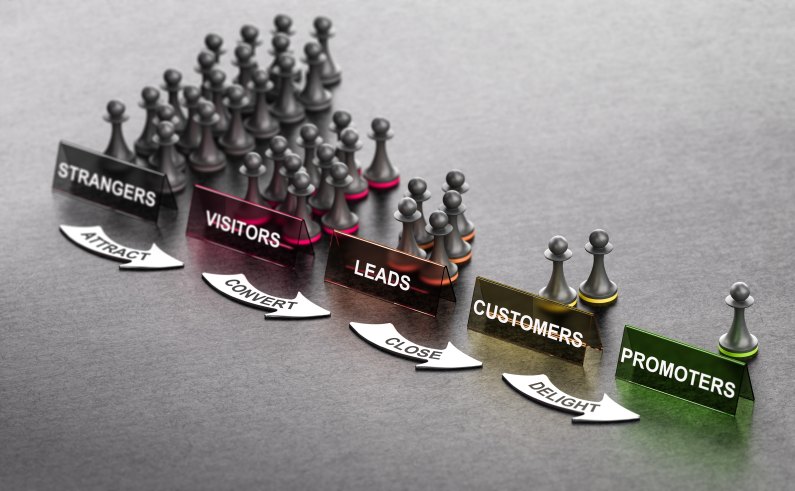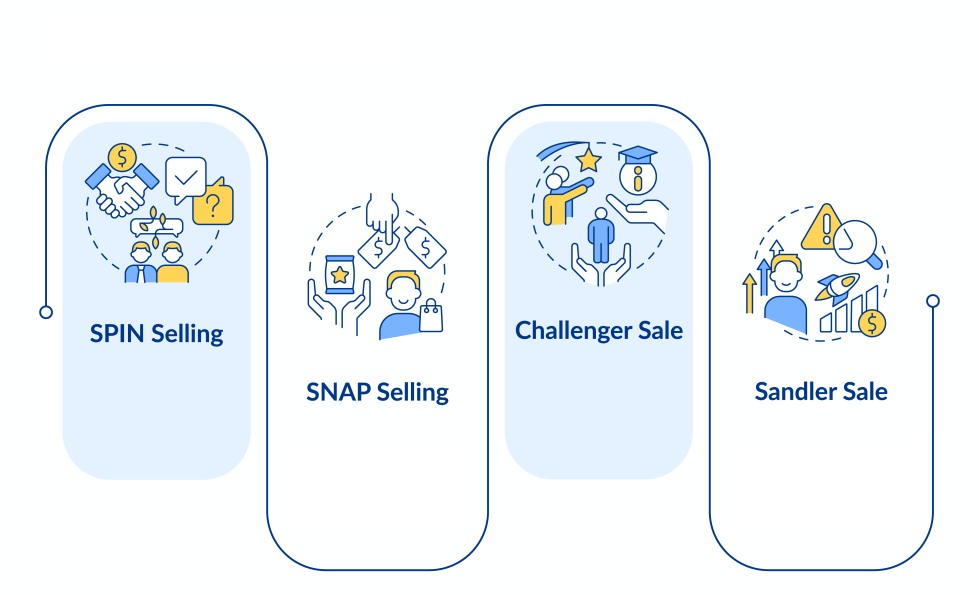In business, the term “sales process” refers to the steps sales professionals take to make a sale. The steps may vary depending on the type of product or service being sold, but they typically include prospecting, identifying needs, presenting solutions, handling objections, and closing the sale.
There are many different sales methodologies, but they all share the same goal: to help sales reps more effectively sell products or services. The most popular sales methodologies include Solution Selling, Consultative Selling, Value Selling, and Need-Based Selling. Each has its own strengths and weaknesses, so it’s important to choose the right one for your business.
As you can see, understanding sales processes and sales methodologies is essential for any business that wants to be successful. But when it comes to Sales Methodology Vs Sales Process, how do you know which one best suits your business? What does your business require to give production and ROI a much-needed boost?
In this article, we’ll find out what sales methodology and sales process entail and how each one of them is complementary to your sales efforts.
What is a Sales Process?
A sales process is a series of defined steps that a salesperson takes to take a prospective buyer from initial contact through to a close. The sales process is often referred to as a “sales funnel,” because it starts with a large number of potential customers (the top of the funnel) and narrows down to only the most qualified prospects (the bottom of the funnel).
By following a defined sales process, businesses can improve their close rates and increase their overall efficiency. There are many different sales processes, but they all typically include the following steps: prospecting, qualifying, needs assessment, solution presentation, objection handling, and closing.
By taking the time to define and document your own unique sales process, you can ensure that your sales teams are always operating at peak efficiency.
What Happens in a Sales Process?
The sales process is the steps a salesperson takes to close a deal with a customer. The process can vary depending on the product or service being sold, but there are typically four main steps: prospecting, pre-approach, approach, and presentation.
-Prospecting is the first step and involves identifying potential customers and researching their needs.
-Pre-approach comes next and involves planning the sales call and developing a strategy for presenting the product or service.
-The approach is the actual sales call, during which the salesperson makes contact with the customer and tries to establish rapport.
-Finally, the presentation is when the salesperson pitches the product or service and tries to close the deal.
If successful, this is followed by post-sale activities such as customer service and follow-up. It’s important to be aware of what happens in a typical sales cycle process so that you can be prepared for each step.
How Does Having a Sales Process Benefit a Business?
Having a sales process in place can offer a number of benefits for businesses. Perhaps most importantly, it can help to improve close rates and increase efficiency. A well-designed sales process, that translates to a sales strategy, will take into account the various stages that a prospect goes through, from initial contact to closing the deal.
By mapping out this journey, businesses can ensure that they are consistently providing the right information at the right time. This can help to speed up decision-making and reduce the risk of prospects getting cold feet.
In addition, a sales process can provide valuable insights into which techniques are most effective at each stage of the journey. This knowledge can then be used to fine-tune future campaigns and drive even better results.
As such, it is clear to see why having a sales process is so beneficial for businesses.
Do you need help implementing a successful sales methodology and sales process to close more deals?
Contact Growth Hackers
What is a Sales Methodology?
A sales methodology is a set of best practices that salespeople or a sales organization can use to increase their chances of success. There are many things effective salespeople need to handle and anticipate. However, there is no one-size-fits-all approach to sales, and different methods may work better for different products or services.
In general, a sales methodology isn’t applicable to your entire sales cycle but is simply a means of boosting an aspect of your sales process, something like a sales strategy.
Many sales methodologies are based on the idea of creating a system for identifying and qualifying potential customers. Once a potential customer has been identified, the salesperson can then use various techniques to try to persuade them to make a purchase.
Common selling techniques include giving presentations, negotiating prices, and providing discounts or incentives. Ultimately, the goal of any sales methodology is to help increase sales and improve the bottom line.
How Does a Sales Methodology Work?
Sales methodologies provide a sales team with a repeatable process for winning new business. By following a consistent methodology, sales teams can close more deals, more quickly and with greater predictability.
There are many different types of sales methodology, but they all share some common elements.
-First, a sales methodology should be tailored to the unique needs of the company.
-Second, it should be designed to help salespeople identify and qualify potential customers.
-Third, the methodology should provide guidance on how to approach and conduct sales conversations.
Lastly, it should include a process for tracking progress and measuring results. By following these best practices, companies can ensure that their sales methodology is effective and helps them win new business.
How Does Having a Sales Methodology Benefit a Business?
A sales methodology focuses on helping a business close more deals while also increasing the average value of each deal. There are a number of different sales methodologies, but they all share some common features.
-First, a good sales methodology should be repeatable and scalable. That means that it should be able to be executed by any member of the sales team, and it should be able to produce consistent results regardless of the size of the deal.
-Second, a good sales methodology should be flexible. It should be able to be adapted to meet the unique needs of each customer.
-Lastly, a good sales methodology should be supported by data and analytics. By tracking key metrics, businesses can ensure that their sales teams are using the most effective methods and strategies.
When implemented correctly, a sales methodology can have a tremendous impact on a business’s bottom line.
How Do You Choose the Right Sales Methodology?
There are a lot of different sales methodologies out there. So how do you know which one is right for your business? The first step is to understand the basics of each methodology.
For example, the consultative selling approach focuses on building relationships and understanding the needs of the customer. By contrast, the transactional selling approach is more focused on closing deals and achieving short-term goals.
Once you have a good understanding of the different approaches, you can start to evaluate which one will work best for your company. Consider factors such as your company culture, the products you sell, and the average deal size. You may also want to test out a few different methodologies to see which one generates the best results.
Ultimately, there is no one-size-fits-all answer when it comes to the sales opportunity pursuit process. The key is to find an approach that aligns with your business goals and allows you to effectively engage with your customers.
A Few Sales Methodologies Examples
SPIN methodology
SPIN selling is a well-known sales methodology that was developed by Neil Rackham in the 1980s. The SPIN acronym stands for Situation, Problem, Implication, and Need-payoff. SPIN selling involves taking the time to understand a prospect’s specific situation, identify their problems, and then craft a solution that meets their needs.
Challenger Methodology
The Challenger sales model is another common sales methodology. The key idea behind the Challenger sale is that salespeople need to be able to challenge their prospects in order to win their business. This means having a deep understanding of the customer’s business and being able to offer insights and suggestions that push them outside of their comfort zone.
Sandler Sales Methodology
The Sandler sales methodology is a less well-known sales methodology but it can be extremely effective. The key principles of the Sandler selling system include building trust, maintaining control of the sales process, and focusing on long-term relationships.
Solution Selling Methodology
Solution Selling is a methodology that focuses on helping prospects find the right solution for their specific needs. This involves taking the time to understand the customer’s unique circumstances and then working with them to find a customized solution that meets their needs.
Conceptual Selling Methodology
Conceptual selling is a methodology that puts the focus on the customer and their needs, rather than on the features of the product. The idea is that by understanding the customer’s problem, the salesperson can then offer a solution that addresses their specific needs. This approach can be contrasted with other approaches that put more emphasis on features, such as product-oriented selling or relationship selling.
SNAP Selling Methodology
Another common sales methodology is SNAP Selling, which was developed by Jill Konrath. The acronym SNAP stands for “simple”, “need”, “authority”, and “priority”. This approach focuses on keeping the sales process simple, understanding the customer’s primary need, identifying the decision maker within the organization, and making sure that the solution is a priority for the customer.
These are just a few examples of sales methodologies that you may encounter during your career. There are many other frameworks such as value stream mapping or process mapping but it’s important to keep in mind that there is no one perfect sales methodology; the best approach for you will depend on your products, your customers, and your own personal style.
Take your revenue to the next level with an effective sales methodology and top-notch sales process!
So, how do both, a sales process and a sales methodology differ from each other?
Sales methodologies and sales processes are two very important but often misunderstood concepts in sales.
A sales methodology is a plan or framework that salespeople use to prospect for and qualify leads, build relationships, and close deals. A sales process, on the other hand, is the specific steps that a salesperson takes to complete each stage of the sales cycle.
While a sales process will vary from company to company, the same sales methodology is implemented in various companies.
For example, the best sales methodologies always emphasize the importance of building rapport with potential customers and establishing trust. They also emphasize the need to thoroughly understand the customer’s needs before making a pitch.
By contrast, a good sales process should be much more specific, outlining exactly what steps need to be taken in order to move a deal through the pipeline successfully.
The bottom line is that a sales methodology defines and provides the foundation for a solid sales process. Without a sound methodology in place, it will be difficult to create an effective process that consistently produces results.
How Do a Sales Process and a Sales Methodology Fit Together?
A sales process is a set of repeatable steps that a salesperson takes to take a prospective buyer from engagement to purchase. A sales methodology is the framework that outlines how those steps should be performed. In other words, the sales process is the WHAT and the sales methodology is the HOW.
The first step in any successful sales process is prospecting, or generating leads. Once you have identified a potential customer, the next step is to establish rapport and build trust. This is followed by a needs assessment, in which you try to understand what specific problem the prospect is trying to solve.
The next step is the proposal, or presenting your solution to the prospect. If the prospect is interested, you will then move on to negotiation and close. Finally, it’s important to follow up after the sale has been made in order to ensure satisfaction and solidify the relationship for future business.
While there are many different ways to perform each of these steps, a good sales methodology will provide guidance on the most effective approach for your particular product or service. By following a proven methodology, you can improve your chances of success at each stage of the sales process and ultimately close more deals.
Final Thoughts on Sales Process Vs Sales Methodology – What Your Business Needs
So, which one does your business need? Sales Process or Sales Methodology?
The answer, of course, is both. A successful sales operation requires a well-defined process that takes into account the various stages of the buyer’s journey. But simply having a process is not enough; you also need a methodology for executing that process effectively.
Only then can you hope to consistently generate quality leads, close deals, and achieve your desired results.
At Growth Hackers, we understand that a successful sales process is essential for any business looking to take its revenue to the next level. However, we also know that designing and implementing an effective sales process can be a challenge.
That’s why we offer our clients comprehensive and data-driven insights that can help them get the most out of their sales team. Our methodology is based on proven best practices and is designed to help businesses increase close rates, improve customer satisfaction, and drive more revenue.
So, if you’re looking for a partner who can help you implement time management hacks for sales reps and take your business to the next level, contact Growth Hackers today. We’ll be happy to show you how our unique approach can benefit your bottom line.








